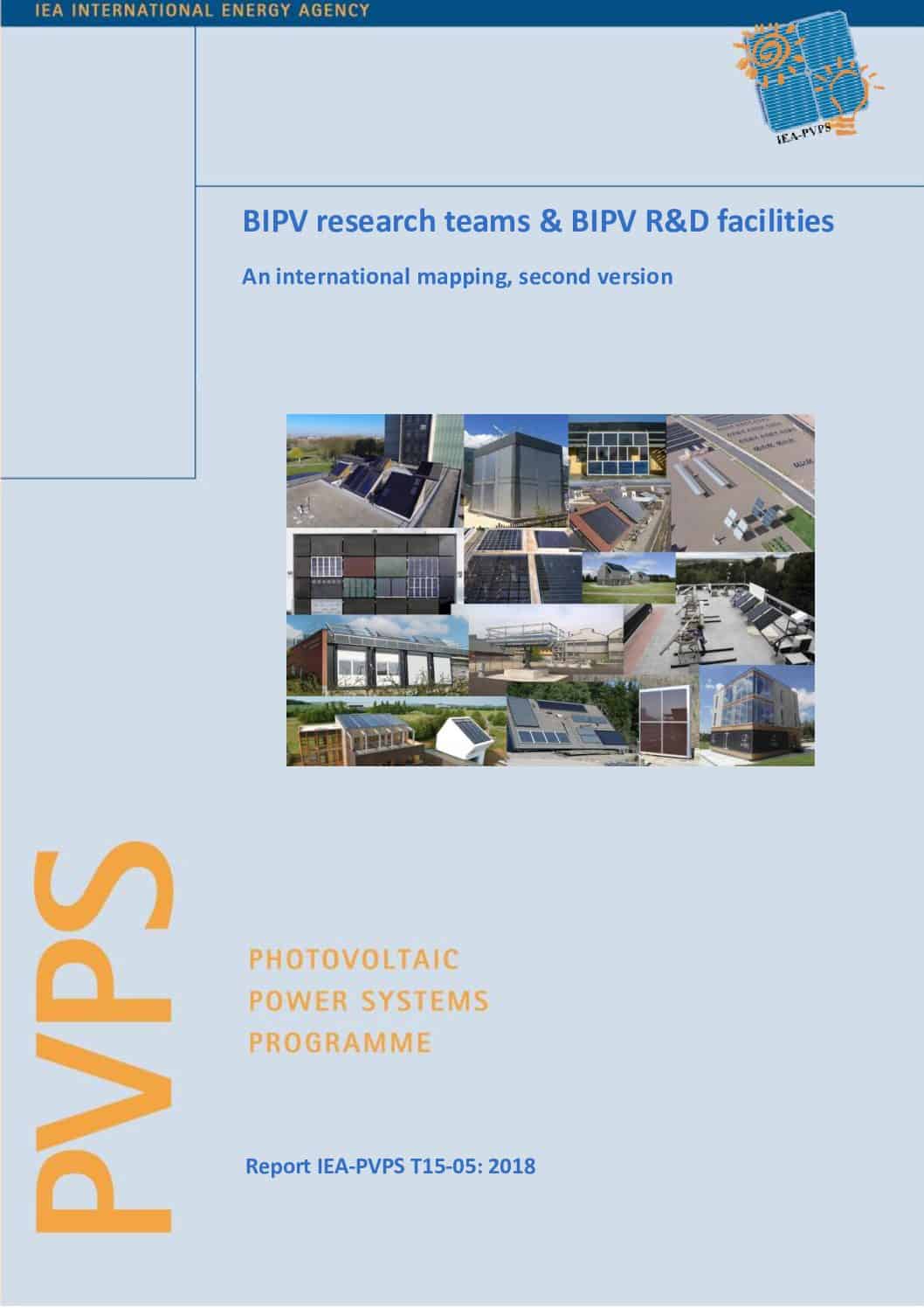Building Integrated PV (BIPV) is seen as one of the five major tracks for large market penetration of PV, besides price decrease, efficiency improvement, lifespan, and electricity storage. IEA PVPS Task 15 focuses on the international collaboration to create an enabling framework to accelerate the penetration of BIPV products in the global market of renewables and building components. One of the key developments necessary for this acceleration is applied research and development of BIPV.
BIPV research teams around the globe have taken on the challenge of generating knowledge and providing solutions related to the integration of photovoltaic technologies in buildings. These research teams are in contact with each other on a regular basis e.g. through conferences, international consortia and in the IEA PVPS Task 15 community. However, a clear overview of the activities and the infrastructure of the different research facilities were still to be developed.
The scope of the report is to map the research and development teams and test facilities active in BIPV. It focuses on 17 country members of IEA PVPS Task 15 and thus, this report does not provide an exhaustive list of all research teams and facilities around the globe.
To collect the necessary information and allow for an additional in-depth-analysis of the research facilities, the first publication of this report (published in January 2018) used two questionnaires, developed before the publication of the first BIPV standard, “EN 50583: Photovoltaics in buildings”. Thus, the report included all research facilities interpreted as BIPV by the respondents and not necessarily fulfilling the requirements stated in EN 50583. In this edition, Appendix C is included. It provides further information on the testing facilities and measurement capabilities based on the classifications given in standard EN 50583.
The report is split into four main sections: Chapter 4 gives a general overview of the international BIPV-related research teams and facilities. Chapter 5 provides an overview of BIPV research capabilities and workforce for each country. Chapter 6 comprises information regarding BIPV outdoor testing facilities dedicated to BIPV and their testing capabilities. Finally, Chapter 7 presents a listing of additional relevant PV/BIPV R&D facilities.
The present report shows the BIPV related research topics undertaken by the interviewed research teams, covering market studies product development and technical design, indoor testing against building and PV norms, outdoor testing, architectural and aesthetic aspects, social aspects, economical aspects, electrical system solutions for BIPV, and other research topics related to BIPV.
It also presents the latest state of the art on BIPV testing facilities, providing relevant input for BIPV developers on site selection for their BIPV product development and testing, and increases the collaboration and international agreement on BIPV testing procedures. The international collaboration is embedded in a proceeding activity of a round robin BIPV test bench testing.
Finally, this second edition of the report provides further information on the testing facilities specific product testing and measurement capabilities taking into consideration the classifications given in standard EN 50583 and the development of other related BIPV standards.
